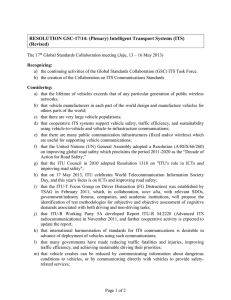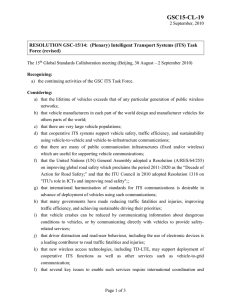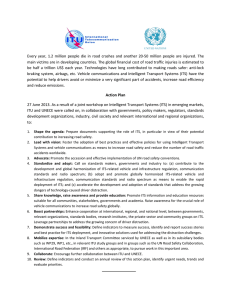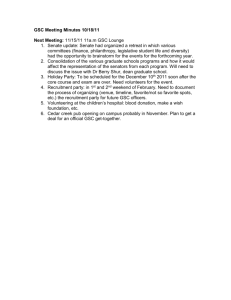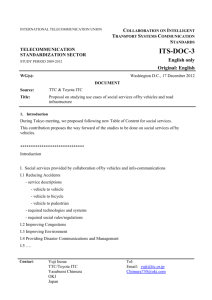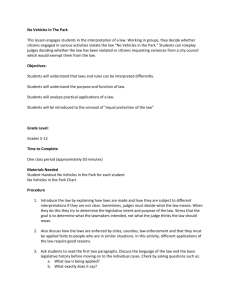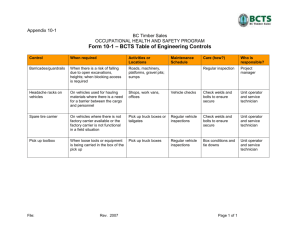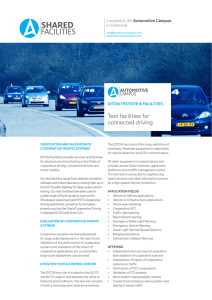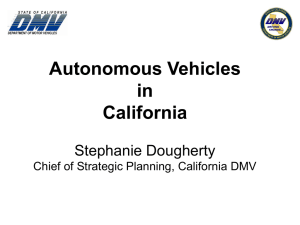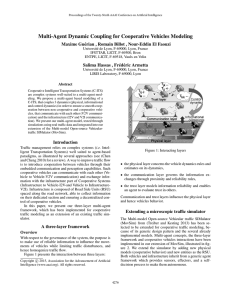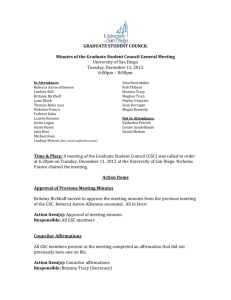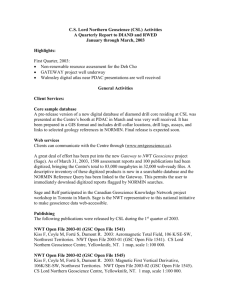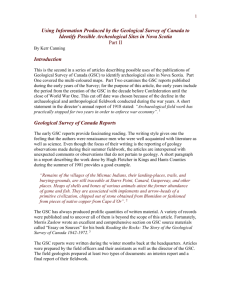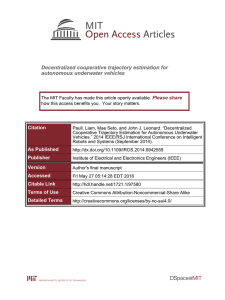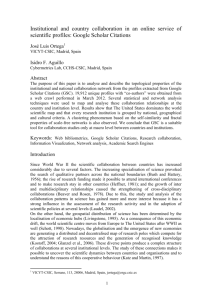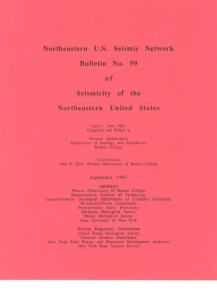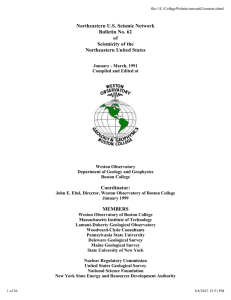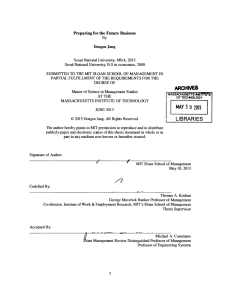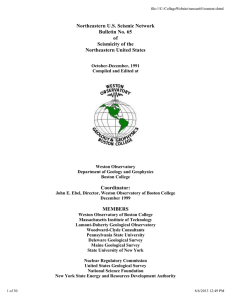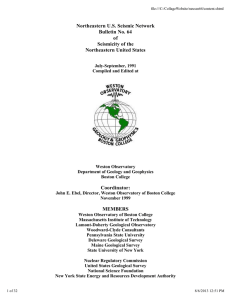RESOLUTION GSC-16/14: (Plenary) Intelligent Transportation
advertisement
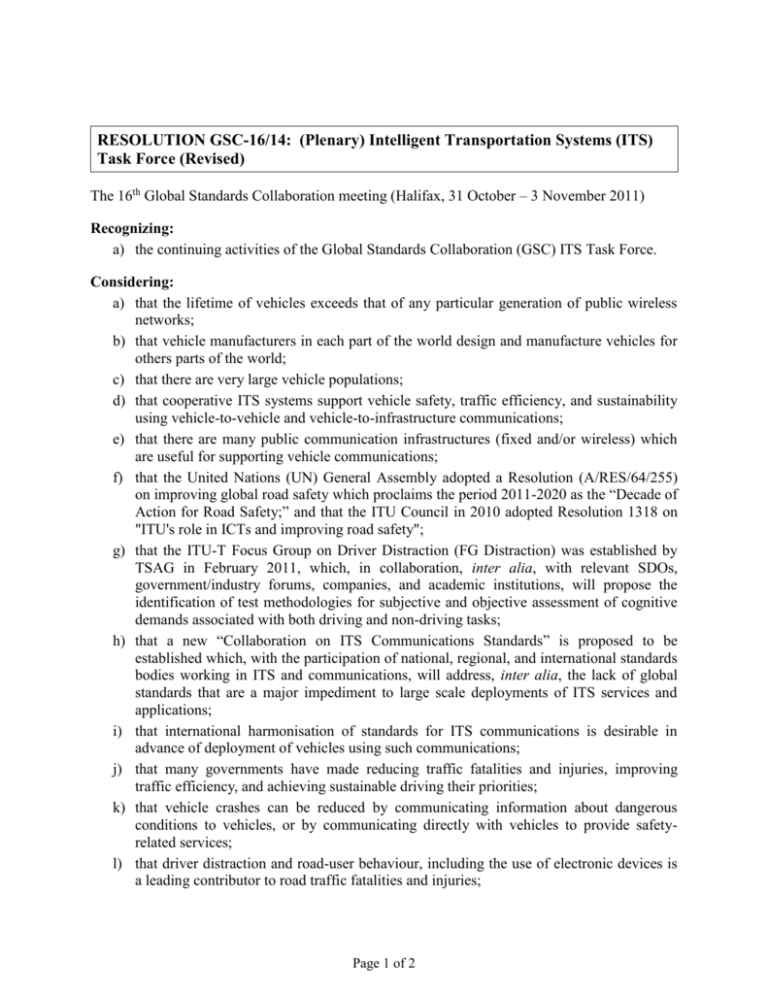
RESOLUTION GSC-16/14: (Plenary) Intelligent Transportation Systems (ITS) Task Force (Revised) The 16th Global Standards Collaboration meeting (Halifax, 31 October – 3 November 2011) Recognizing: a) the continuing activities of the Global Standards Collaboration (GSC) ITS Task Force. Considering: a) that the lifetime of vehicles exceeds that of any particular generation of public wireless networks; b) that vehicle manufacturers in each part of the world design and manufacture vehicles for others parts of the world; c) that there are very large vehicle populations; d) that cooperative ITS systems support vehicle safety, traffic efficiency, and sustainability using vehicle-to-vehicle and vehicle-to-infrastructure communications; e) that there are many public communication infrastructures (fixed and/or wireless) which are useful for supporting vehicle communications; f) that the United Nations (UN) General Assembly adopted a Resolution (A/RES/64/255) on improving global road safety which proclaims the period 2011-2020 as the “Decade of Action for Road Safety;” and that the ITU Council in 2010 adopted Resolution 1318 on "ITU's role in ICTs and improving road safety"; g) that the ITU-T Focus Group on Driver Distraction (FG Distraction) was established by TSAG in February 2011, which, in collaboration, inter alia, with relevant SDOs, government/industry forums, companies, and academic institutions, will propose the identification of test methodologies for subjective and objective assessment of cognitive demands associated with both driving and non-driving tasks; h) that a new “Collaboration on ITS Communications Standards” is proposed to be established which, with the participation of national, regional, and international standards bodies working in ITS and communications, will address, inter alia, the lack of global standards that are a major impediment to large scale deployments of ITS services and applications; i) that international harmonisation of standards for ITS communications is desirable in advance of deployment of vehicles using such communications; j) that many governments have made reducing traffic fatalities and injuries, improving traffic efficiency, and achieving sustainable driving their priorities; k) that vehicle crashes can be reduced by communicating information about dangerous conditions to vehicles, or by communicating directly with vehicles to provide safetyrelated services; l) that driver distraction and road-user behaviour, including the use of electronic devices is a leading contributor to road traffic fatalities and injuries; Page 1 of 2 m) that new wireless access technologies, including TD-LTE, may support deployment of cooperative ITS functions as well as other services such as vehicle-to-grid communication; n) that several key issues to enable such services require international coordination and coordination between and among Participating Standards Organizations (PSOs); and o) that the GSC ITS Task Force has delivered a set of recommendations for standards collaborations activities. Resolves: 1) to continue the GSC ITS Task Force; 2) to further increase the global coordination of standardization activities for cooperative ITS; 3) to request the Participating Standards Organisations to actively participate in the coordination activities of the regional/global ITS standardisation activities, and participate in the GSC ITS Task Force providing progress reports on their respective national/regional/global activities in each of the topic areas; and 4) to invite the Participating Standards Organisations to consider participating in, and contributing to, the proposed new “Collaboration on ITS Communications Standards”. _____________ Page 2 of 2
